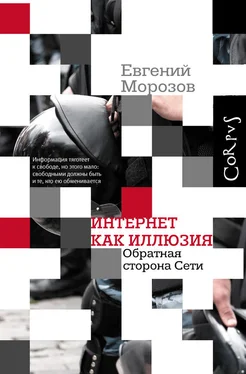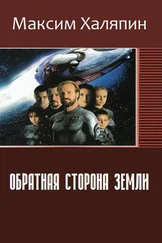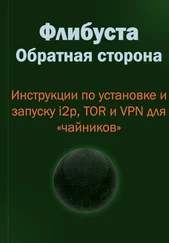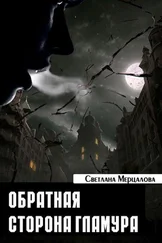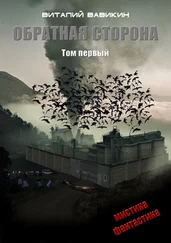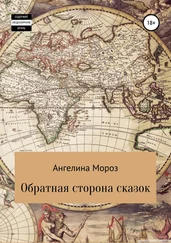Moe, H. Everyone a Pamphleteer? Reconsidering Comparisons of Me-diated Public Participation in the Print Age and the Digital Era // Media, Culture & Society 32, no. 4 (2010): 691.
Nairn, T. Where’s the Omelette? // London Review of Books, No-vember 23, 2008.
Nelson, M. War of the Black Heavens: The Battles of Western Broad-casting in the Cold War . Syracuse, NY: Syracuse University Press, 1997.
Osgood, K. A. Hearts and Minds: The Unconventional Cold War // Journal of Cold War Studies 4, no. 2 (2002): 85–107.
Oushakine, S. A. The Terrifying Mimicry of Samizdat // Public Cul-ture 13, no. 2 (2001): 191.
Palmer, M. Breaking the Real Axis of Evil: How to Oust the World’s
Last Dictators by 2025. Lanham, MD: Rowman & Littlefield, 2003. Patterson, E., and J. Amaral Presidential Leadership and De-mocracy Promotion // Public Integrity 11, no. 4 (2009): 327–346.
Pierskalla, J. H. Protest, Deterrence, and Escalation: The Strategic Calculus of Government Repression // Journal of Conflict Resolution 54, no. 1 (2010): 117.
Posner, M. H., and A. Ross Briefing on Internet Freedom and 21 st Century Statecraft . U. S. Department of State, Washington, DC, January 22, 2010.
Puddington, A. Broadcasting Freedom: The Cold War Triumph of Radio Free Europe and Radio Free Liberty . Lexington: University Press of Kentucky, 2000.
Ray, J. L., and B. Russett The Future as Arbiter of Theoretical Controversies: Predictions, Explanations and the End of the Cold War // British Journal of Political Science 26, no. 4 (1996): 441–470.
Reagan Urges “Risk” on Gorbachev: Soviet Leader May Be Only Hope for Change, He Says // Los Angeles Times, June 13, 1989.
Rosati, J. A. A Cognitive Approach to the Study of Foreign Policy // Foreign Policy Analysis: Continuity and Change in Its Second
Generation (1995): 49–70.
Rose, R., and D. C. Shin Democratization Backwards: The Prob-lem of Third-Wave Democracies // British Journal of Political Science 31, no. 2 (2001): 331–354.
Said, Edward Hey, Mister, You Want Dirty Book? // London Review of Books, September 20, 1999.
Saunders, D. In Czechoslovakia, Human Network Made the Message
Go Viral // Globe and Mail (Toronto), October 29, 2009. Saxonberg, S. The “Velvet Revolution” and the Limits of Rational
Choice Models // Czech Sociological Review 7, no. 1 (1999): 23–36. Schipani-AdÚriz, A. Through an Orange-Colored Lens: Western
Media, Constructed Imagery, and Color Revolutions // Demokra-tizatsiya: The Journal of Post-Soviet Democratization 15, no. 1 (2007): 87–115.
Schmitter, P. C., and T. L. Karl What Democracy Is … and Is Not // Journal of Democracy 2, no. 3 (1991): 75–88.
Schmitter, P. C., and J. Santiso Three Temporal Dimensions to the Consolidation of Democracy // International Political Science Re-view/Revue internationale de science politique 19, no. 1 (1998): 69–92.
Senor, D., and C. Whiton Five Ways Obama Could Promote Freedom in Iran // Wall Street Journal, June 17, 2009.
Shah, N. From Global Village to Global Marketplace: Metaphorical Descriptions of the Global Internet // International Journal of Me-dia and Cultural Politics 4, no. 1 (2008): 9–26.
Shane, S. Dismantling Utopia: How Information Ended the Soviet Union . Chicago: I. R. Dee, 1995.
Sharman, J. C. Culture, Strategy, and State-Centered Explanations of
Revolution, 1789 and 1989 // Social Science History 27, no. 1 (2003). Shimko, K. L. Metaphors and Foreign Policy Decision Making // Po-litical Psychology 15, no. 4 (1994): 655–671.
Shimko, K. L. Psychology and Cold War History: A Review Essay // Political Psychology 15, no. 4 (1994): 801–806.
Shimko, K. L. Reagan on the Soviet Union and the Nature of Inter-national Conflict // Political Psychology. 13, no. 3 (1992): 353–377.
Shirk, S. L. Changing Media, Changing Foreign Policy in China //
Japanese Journal of Political Science 8, no. 1 (2007): 43–70. Silitski, V. What Are We Trying to Explain? // Journal of Demo-cracy 20, no. 1 (2009): 86–89.
Snyder, R. S. The End of Revolution? // Review of Politics 61, no. 1 (1999): 5–28.
Sontag, S. Illness as Metaphor; and AIDS and Its Metaphors . New York: Picador, 2001.
Specter, A. Attack the Cyberwalls! // Pittsburgh Post-Gazette, July 7, 2009.
Sterling, B. Triumph of the Plastic People // Wired, January 22, 1995. Stier, K. U. S. Girds for a Fight for Internet Freedom // Time, Febru-ary 6, 2010.
Sunstein, C. R. Hazardous Heuristics // University of Chicago Law Review 70, no. 2 (2003): 751–782.
Suri, J. Explaining the End of the Cold War: A New Historical Consen-sus? // Journal of Cold War Studies 4, no. 4 (2002): 60–92.
Sweller, J., Mawer, R. F., and W. Howe Consequences of His-tory-Cued and Means-End Strategies in Problem Solving // Ameri-can Journal of Psychology 95, no. 3 (1982): 455–483.
Tait, R. Hardliners Turn on Ahmadinejad for Watching Women Danc-ers // Guardian, December 5, 2006.
Tetlock, P. E., and C. McGuire Cognitive Perspectives on Fo-reign Policy / In: Long, S., ed. Political Behavior Annual . Boulder: Westview, 1986.
Tilly, C. Trust and Rule // Theory and Society 33, no. 1 (2004): 1–30. Tsui, L. The Great Firewall as Iron Curtain 2.0 : The Implications of
China’s Internet Most Dominant Metaphor for US Foreign Policy . Paper presented at 6th annual Chinese Internet Research Confe-rence, University of Hong Kong, June 13–14, 2008. jmsc.hku.hk/ blogs/ circ/ files/ 2008/ 06/tsui_lokman.pdf.
Tsui, L. An Inadequate Metaphor: The Great Firewall and Chinese In-ternet Censorship // Global Dialogue 9, no. 1–2 (2007).
Ungar, S. Misplaced Metaphor: A Critical Analysis of the Knowledge Society // Canadian Review of Sociology/Revue canadienne de so-ciologie 40, no. 3 (2003): 331–347.
Vasina, J. I. Transformation of Eastern Europe in 1989 : Impacts of Information, Communications Technology and Globalization
Process on Change . Master’s thesis, Excelsior College, March 7, 2007.
Vertzberger, Y. Y. I. Foreign Policy Decisionmakers as Practical-Intuitive Historians: Applied History and Its Shortcomings // Inter-national Studies Quarterly 30, no. 2 (1986): 223–247.
Way, L. The Real Causes of the Color Revolutions // Journal of Democ-racy 19, no. 3 (2008): 55–69.
Way, L. A., and S. Levitsky Linkage, Leverage, and the Post-Communist Divide // East European Politics and Societies 21, no.1 (2007): 48.
Wells, W. G., Jr. Politicians and Social Scientists: An Uneasy Rela-tionship // American Behavioral Scientist 26, no. 2 (1982): 235. Wyatt, S. Danger! Metaphors at Work in Economics, Geophysiology, and the Internet // Science, Technology & Human Values 29, no. 2 (2004): 242.
Youngs, R. European Approaches to Democracy Assistance: Learning the Right Lessons? // Third World Quarterly 24, no. 1 (2003): 127–138.
Глава 3. Оруэлл и “ржачные котики”
America’s Emobyte Deficit // Economist, November 27, 2007.
Ballard, J. G. “Aldous Huxley: An English Intellectual” by Nicholas
Murray // Guardian, April 13, 2002.
Barboza, D. Internet Boom in China Is Built on Virtual Fun // New York
Times, February 5, 2007.
Barboza, D. The People’s Republic of Sex Kittens and Metrosexuals //
Читать дальше
Конец ознакомительного отрывка
Купить книгу
